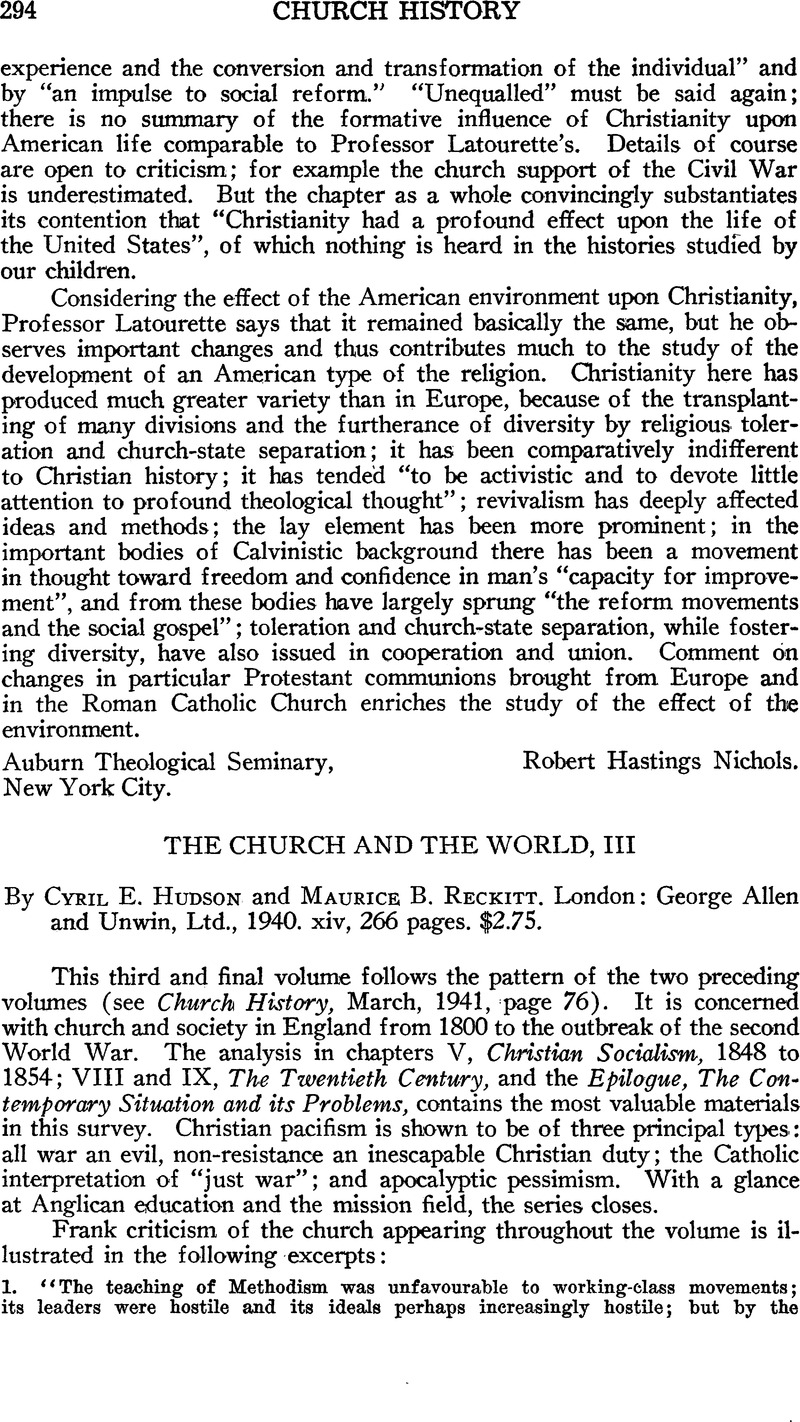No CrossRef data available.
Article contents
The Church and the World, III By Cyril E. Hudson and Maurice B. Reckitt. London: George Allen and Unwin, Ltd., 1940. xiv, 266 pages. $2.75.
Published online by Cambridge University Press: 28 July 2009
Abstract

- Type
- Book Reviews
- Information
- Copyright
- Copyright © American Society of Church History 1941
References
1. “The teaching of Methodism was unfavourable to working-class movements; its leaders were hostile and its ideals perhaps increasingly hostile; but by the life and energy and awakening that it brought to this oppressed society it mnst, in spite of itself, have made many men better citizens, and soma even better rebels.” (p. 16).
2. “The Church of England, as it now stands, no human power can save; my fear is that if we do not mind, we shall come to the American fashion and have no provision made for the teaching of Christianity at all,” Arnold, Thomas, 1832, p. 33.Google Scholar
3. “What is our Church? Do I not see it as a selfish sect—pressing on other Christians—keeping them from its schools and colleges—grasping its own wealth? Do I not see year after year a more complete estrangement from the poor? It is notorious that a poor man never by accident comes into a town church. The great mass of the poor of this city have no kind of place there: and does the Church care? … As a politician I feel as sure as I am of anything that the Church cannot last a generation,” Harrison, Frederic, 1853, p. 103.Google Scholar
4. In 1937 a “German Christian” bishop said: “We would still go on with the Führer, even if he closed the Church doors behind us. In Germany there is no life except with the Führer. Inside the Church is the dying world; alongside the Church that world which strides forward into life. The present-day task of theological science is to provide a religious foundation for the new State ethics,” p. 215.




